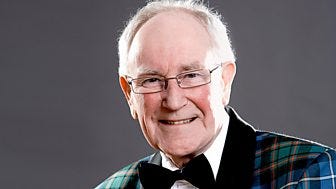Robbie Shepherd
Music presenter on BBC Scotland and advocate for the Scots Doric language of the Northeast
This article about the late Robbie Shepherd was published in the winter 2010-11 issue of Scottish Life magazine; please keep that in mind when reading the present tenses below! Shepherd hosted his ra…
Keep reading with a 7-day free trial
Subscribe to Scotland's Music, Landscape & Events to keep reading this post and get 7 days of free access to the full post archives.


